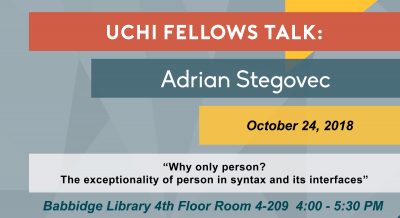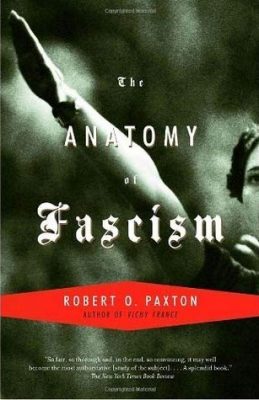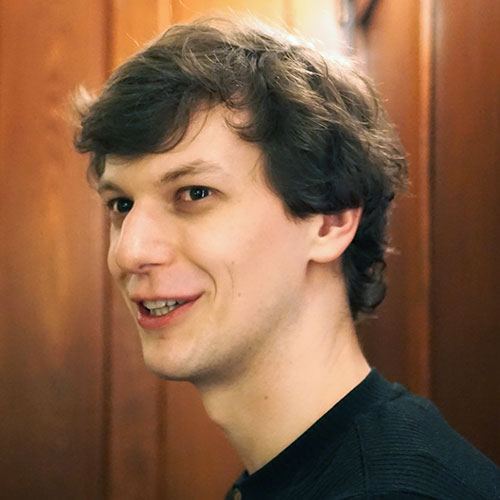
1. Tell us a bit about the project you are working on at UCHI.
A sentence like “She introduced you to me”, where the pronouns “you” and “me” co-occur, isn’t that easy to form in many languages. In fact, in some languages it is downright impossible for certain pronouns to co-occur in a sentence. This is, for example, the case in French, where speakers don’t accept the sentence “Elle te me a présenté”, with the meaning of the English one from earlier, as well as other similar sentences with the wrong combinations of co-occurring pronouns. As part of my project, I investigate the patterns that arise with possible and impossible combinations of co-occurring pronouns across different languages, examining over 100 languages spanning different language families from all over the world.
It turns out that there is surprisingly little variation in the attested kinds of impossible combinations. The co-occurrence of pronouns is always restricted depending on their person – that is, whether they are 1st (“I”, “we”), 2nd (“you”), or 3rd person (“he”, “she”, “they”) - but never depending on their grammatical number or gender. Furthermore, all restrictions conform to the same abstract pattern and vary from language to language in a handful of predictable ways. This is surprising, given that such restrictions are often found in unrelated languages, separated from each other both historically and geographically - indicating that the pattern is not the result of a historical transfer or geographic contact. In my project, I explore the idea that this phenomenon can reveal to us important clues about the universal mental mechanisms we use to create and interpret language.
2.What drew you to this topic and what exciting developments are you anticipating?
I think what drew me to the topic was the same thing that originally drew me to linguistics. It’s just fascinating that in spite of how different individual languages may seem from one another, there exist patterns underlying the differences which we can uncover by approaching language in a scientific way. In that respect, I’m just happy that I found a topic that is at the same time quite narrow – looking at one very specific phenomenon – and has implications for one of the main problems linguistics deals with.
Although I have already made a lot of preliminary findings – for example, the cross-linguistic patterns mentioned earlier, and I have some ideas of where to take the project next, I can’t completely anticipate what all the details of my analysis will be and what else I will uncover as I work towards them. I think that is the truly exciting bit.
3. What are you looking forward to in regard to this year at UCHI?
I’m looking forward to an environment where I can engage with ideas and questions that I would otherwise not get in a linguistics-only setting. I think it is important to know how to communicate your ideas to broader audiences, so this year will be a perfect opportunity to hone those skills, see where the topics I work on fit in the broader context of the humanities, get feedback from experts in fields I’m not that familiar with, and learn about the exciting topics they are working on. Hopefully, I can return the favor by also offering a linguist’s perspective on non-linguistic topics.
4. Many people wonder what value the humanities and humanities research has in today’s world. What are your thoughts on what humanities scholarship “brings to table?”
The fields that comprise the humanities are so varied that they each bring something unique to the table. Because of that, I’m not comfortable giving an opinion on the humanities as a whole and I’ll focus only on linguistics. Almost everyone has an opinion about language - either the language or languages they speak or what language is in general, and almost everyone also doesn’t know what linguistics is or what a linguist does.
But there’s much to be gained from the study of language, even though most people take it for granted. Linguists have uncovered a lot over the last 50-60 years, but we’re still just scratching the surface. For example, we’re only now starting to seriously explore the neurological and evolutionary side of language. Think also of the technological progress made with automatic translation and voice assistant software. In spite of how advanced these technologies may seem, we’re still far from making computers speak and understand language on par with humans. Consider that, as the voice assistant with the most supported languages, Apple’s Siri currently “speaks” 20 languages. We estimate that there are around 7000 languages spoken in the world today, and the databases required to train such software, given its current limitations, are practically impossible to compile for the vast majority of those languages. In contrast, a child learns their native language without really breaking a sweat, regardless of the language, and working with a very limited input compared to their computerized competitors. Whatever our children are doing, it’s radically different from what Siri’s teams of programmers are doing. The next big steps in the development of such technologies won’t come without first better understanding language itself.
Linguistics has the potential to be a bridge between the humanities on one end and engineering and the natural sciences on the other. Aside from this, I think that being aware of the complexity and the diversity of the world’s languages, and that language can be studied like any other natural object, can help people view the world more critically. If language, which comes to us so easily, is so complex that we are still working on fully understanding it, then perhaps other things we take for granted are worth a second though.











